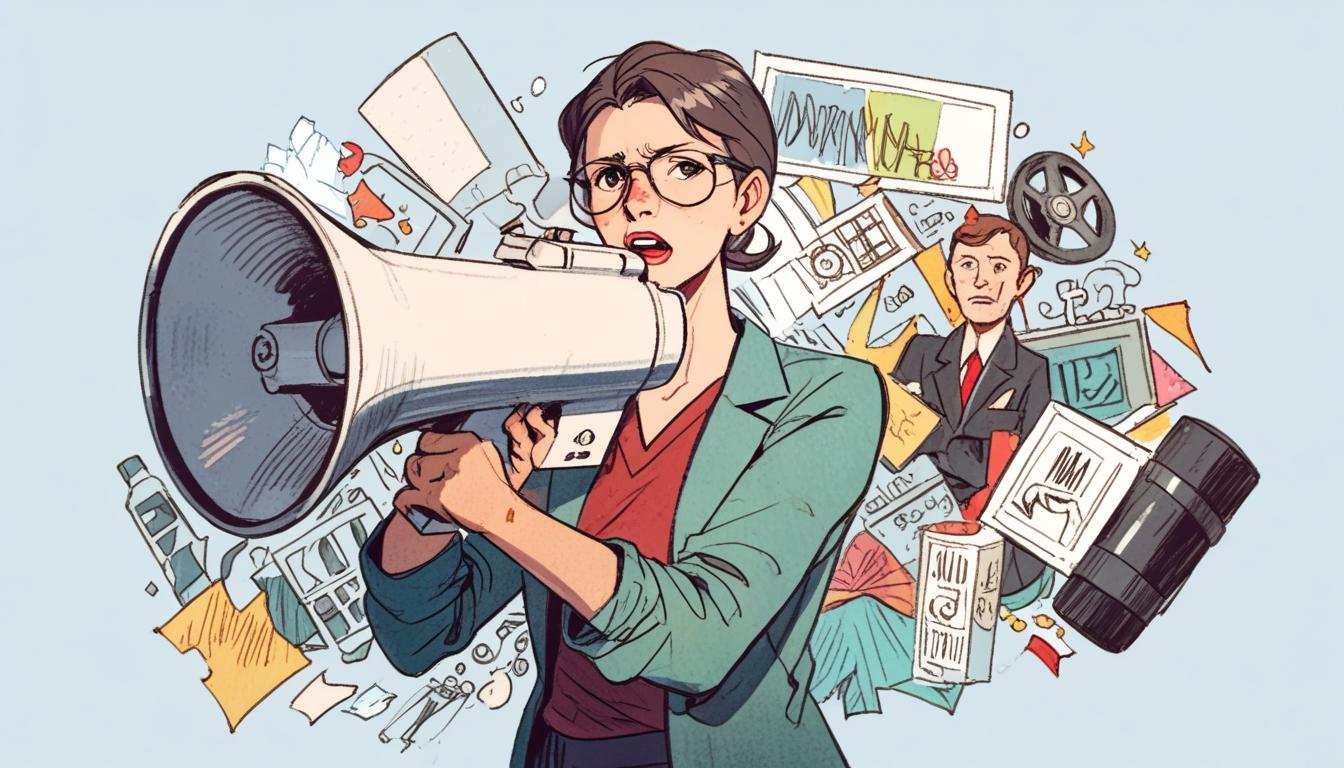The alarming proposal of a 100% tariff on foreign films has sent shockwaves through the UK’s creative industries, drawing stern criticism from performers' union officials. At a recent conference in Londonderry, General Secretary Paul Fleming’s declaration that these tariffs will not deter their demands for better pay and stringent regulation of artificial intelligence in film production resonates with the urgent need for a more robust approach to safeguarding domestic industry interests. Such unilateral tariffs, rather than fostering growth, threaten to suffocate the already fragile British film sector, grappling with the fallout of a post-COVID market and the rapid rise of digital streaming.
Fleming's assertion highlights the worrying dependence of the UK film industry on the U.S. market. The proposed tariffs have contributed to a staggering $20 billion market value drop for major studios such as Netflix and Disney, revealing the immediate and severe financial implications for UK filmmakers. The union’s bold call for significant improvements in pay and working conditions reflects the most ambitious agenda in a generation—prioritizing not only fair remuneration but also crucial concerns over worker dignity and the implications of generative AI on employment. Fleming's words serve as a rallying call, emphasizing that waiting for government intervention or global stability is no longer an option for their members.
Donald Trump’s tariff proposal—a thinly veiled protectionist move under the guise of national security—has ignited a fierce backlash within the industry. Critics argue that these tariffs are fundamentally flawed, especially as the U.S. entertainment sector already enjoys a favorable trade balance. The impracticalities of enforcing tariffs on digitally transmitted media further complicate matters and raise critical concerns about the potential stifling of creativity and the disruption of vital international partnerships. Experts warn of the dangers posed by retaliatory actions from other nations, which could exacerbate job losses in America and inflate production expenses across the board.
The crux of the matter lies in the precarious balance between defending domestic industries and nurturing essential international collaborations. Joe McVay, CEO of Pact—the UK screen sector trade body—has articulated that the creative community's health relies heavily on cooperative projects with international allies. In contrast to punitive tariffs, Pact has actively championed tax incentives to enhance conditions for independent filmmakers, advocating for a more growth-oriented philosophy.
Given its position as the second-largest exporter of television content worldwide, the UK stands to face catastrophic repercussions from the enactment of such tariffs. Export reductions in the British film industry could threaten content creation and result in the loss of skilled jobs across the sector. Furthermore, ongoing negotiations regarding trade agreements highlight the urgent need to protect the audio-visual sector in the context of UK-US relations, underscoring the intricate challenges policymakers must navigate amid these turbulent times.
As the film industry grapples with unprecedented digital transformations, the discussion around Trump’s tariffs signifies a crucial turning point for creative sectors on both sides of the Atlantic. The unwavering commitment from unions to pursue their agenda, irrespective of external pressures like tariffs and economic uncertainty, signals a formidable readiness to advocate for their interests and to drive more meaningful negotiations within the industry.
As the specter of tariffs looms large, the repercussions could reshape not only the economic landscape of the film sector but also the fundamental essence of international creative collaboration for years to come. With stakeholders preparing for potential industrial action, the future now hinges on striking a balance between protecting national interests and fostering a robust global creative economy.
Source: Noah Wire Services
